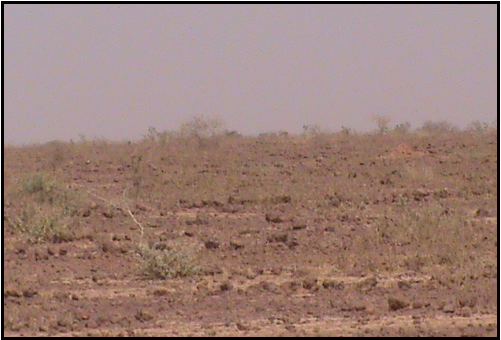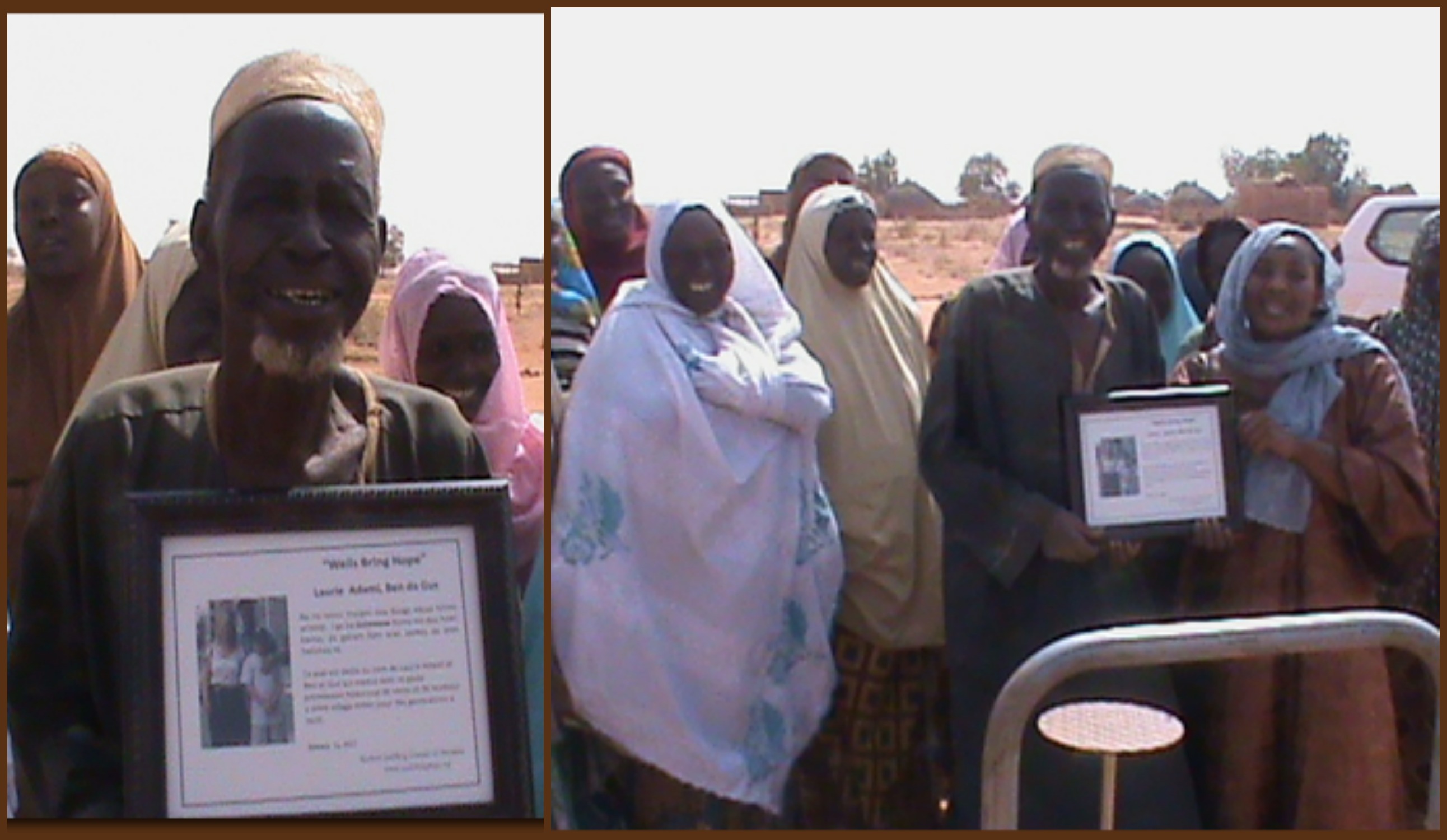by Hadiara Diallo
In early January of 2013, I traveled to Niger, West Africa to follow up on the work of Wells Bring Hope and spend time with its local partner, World Vision. The visit led me to some remarkable, hard-working women who had benefited from a well that we drilled and I was fortunate to be able to witness some of the work that they are not able to do, with their time freed up from walking for water.
 |
| The desolate landscape and rocky roads make for challenging travel. |
One of our many stops was Gatawane in the region of Tillaberi. The village is two hours north of the capital of Niamey and close to the Malian border. The main road leading to Gatawane was in great condition, but as soon as we saw the sign announcing our intended destination, we veered onto an unpaved, rocky road to meet the people of Gatawane who were eagerly expecting us.
Months earlier, the village had received the life-saving gift of a borehole well that is now providing clean, safe water to the whole village. Close to 1,650 lives have been transformed since the drilling of this well. My arrival, along with the World Vision staff, was a chance for the villagers to express their gratitude and a chance for me to reveal to the village that their benefactor was as we dedicated the well to the Adami/Robertson family. Laurie, Ben and Gus have been staunch supporters of Wells Bring Hope for several years, and this is the second well that they have provided for the people of rural Niger.
Gatawane is a very special place because from 2004 to 2011, the area has seen environmental changes that have negatively impacted life and livelihood for the local population. The region has registered decreasing rains as well as very high and dry winds that erode the ground and make the land infertile. A locust invasion depleted several harvests, and due to the proximity to the Malian border, bovine theft is not uncommon. This series of disasters was interrupted in the later part of 2012 when Wells Bring Hope funded the drilling of a much-needed borehole well. This ray of hope marks the beginning of the end of many of the village’s problems.
 |
Now that the women have easy access to safe water, their days are no longer consumed with walking endless miles to retrieve water that is dirty, murky, and often contaminated. The children of Gatawane will now avoid the deadly diseases that are associated with unsafe water, and the girls of the village are now free to attend school.
As soon as we arrived in Gatawane, we were lead toward the new well. As we walked towards it, I could feel the ground shaking as the women of the village stomped and danced in celebration and gratitude. There is a special sound uttered by the women of Gatawane to express their sheer joy; it is not a whistle, nor is it a chirping sound, rather it is a kind of indescribable special expression that makes everyone want to join in the excitement by clapping and dancing.

The village chief, the mayor, and local dignitaries from neighboring villages were present along with a crowd of mostly women who delayed beginning their work in the garden so they could participate in this memorable event. After our introductions, I walked through the crowd and displayed the Wells Bring Hope certificate showing the picture of the Adami/Robertson family. I then handed the certificate to the village chief and told him about this family’s long-standing involvement with our organization and their enduring support for the women of Niger.
I spoke about their dedication to the cause, which led to this second well for the people of Niger. All of the villagers wanted to get closer to take a peek at the photograph. There was a clear surprise, awe, and curiosity on many faces. The chief expressed his happiness for having a well in his village and thanked the Adami/Robertsons for their unwavering support. He wished many blessings onto the family of strangers who stepped in and took on Gatawane’s cause.


